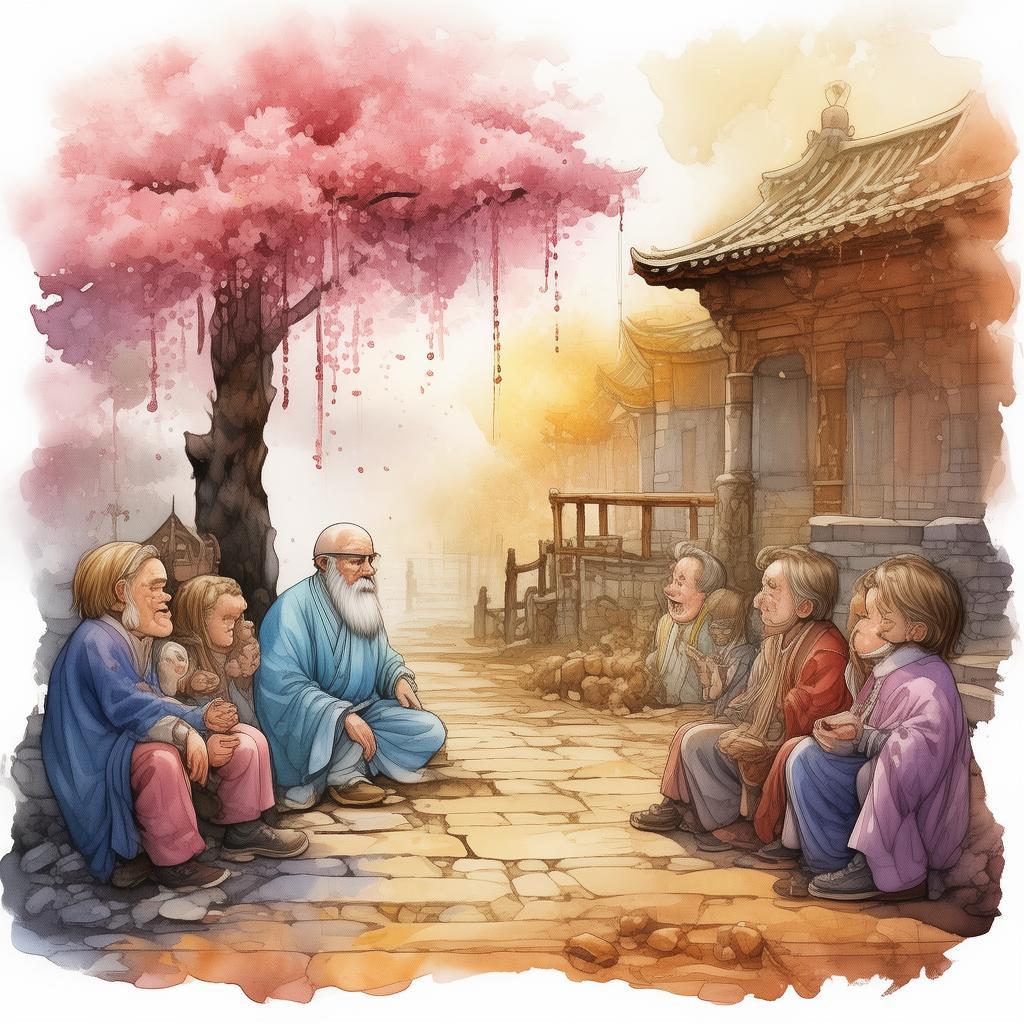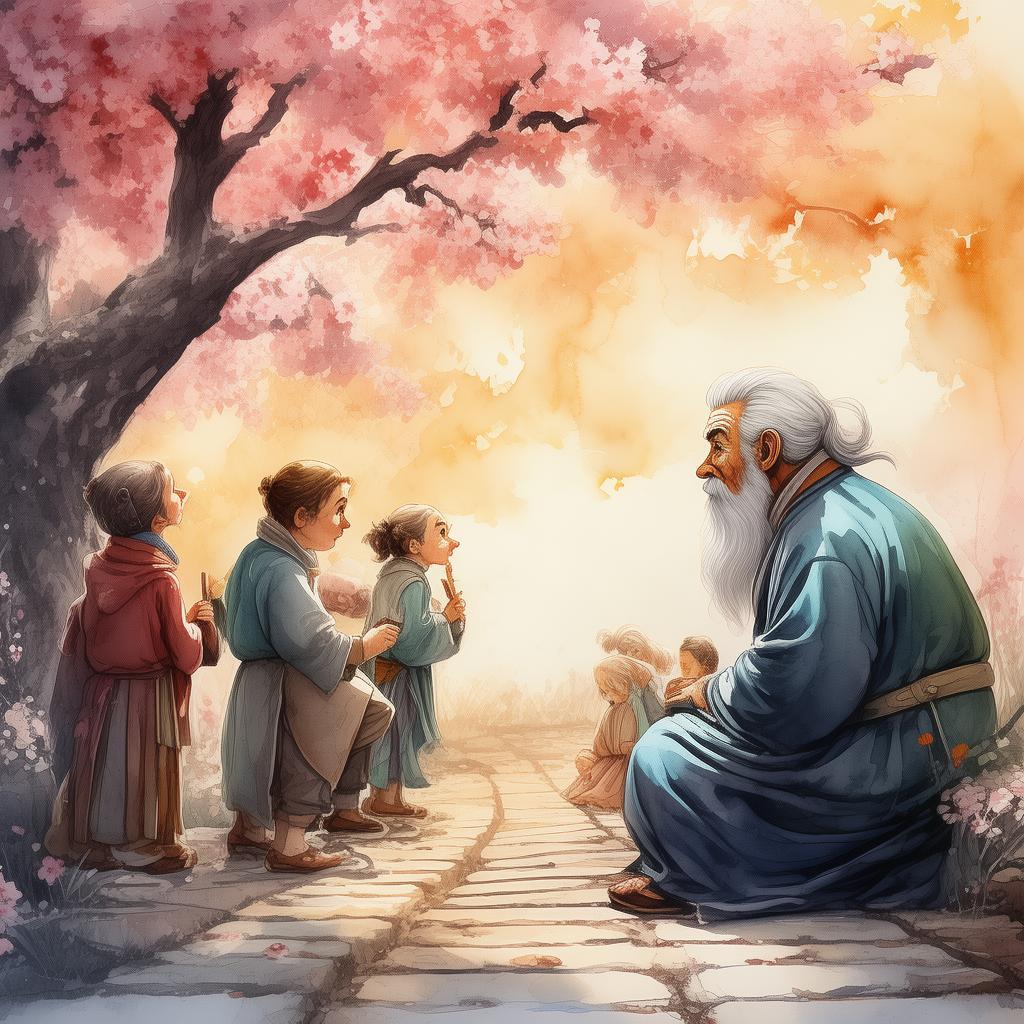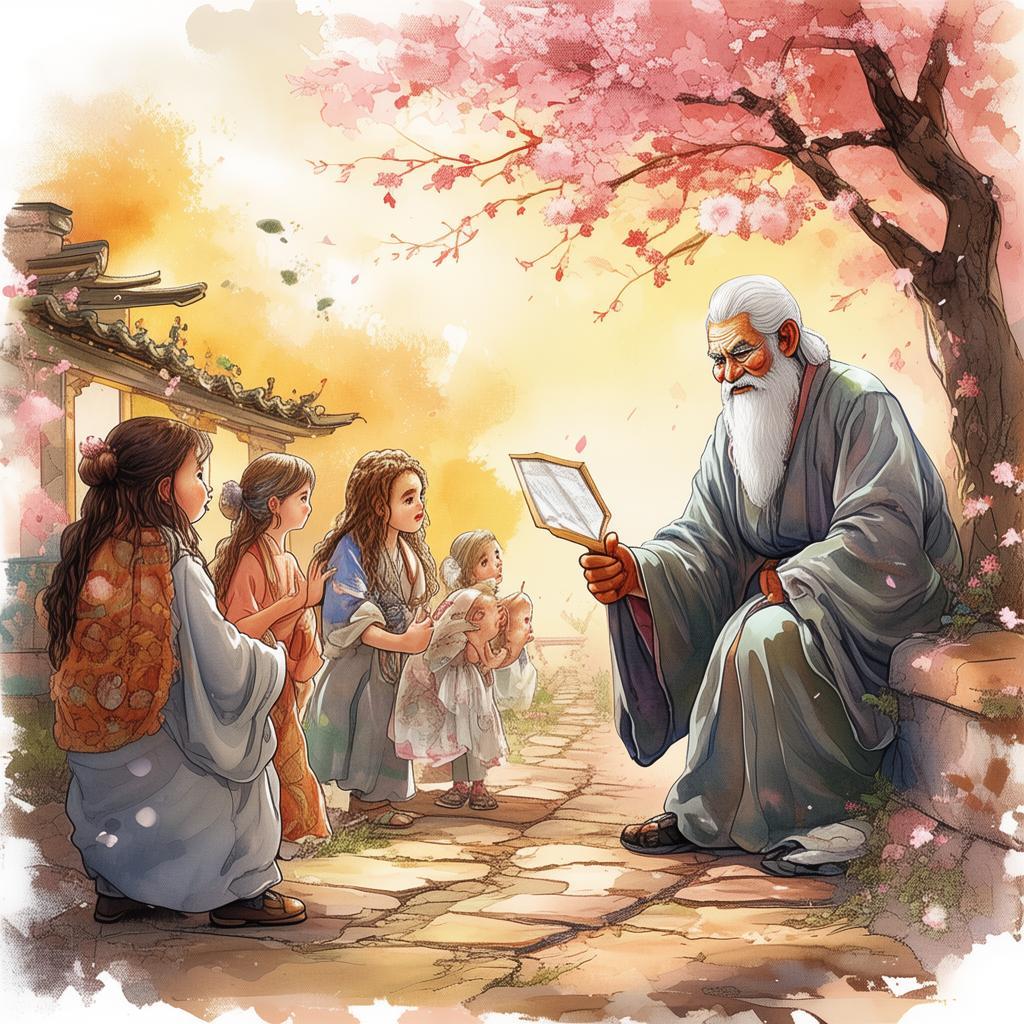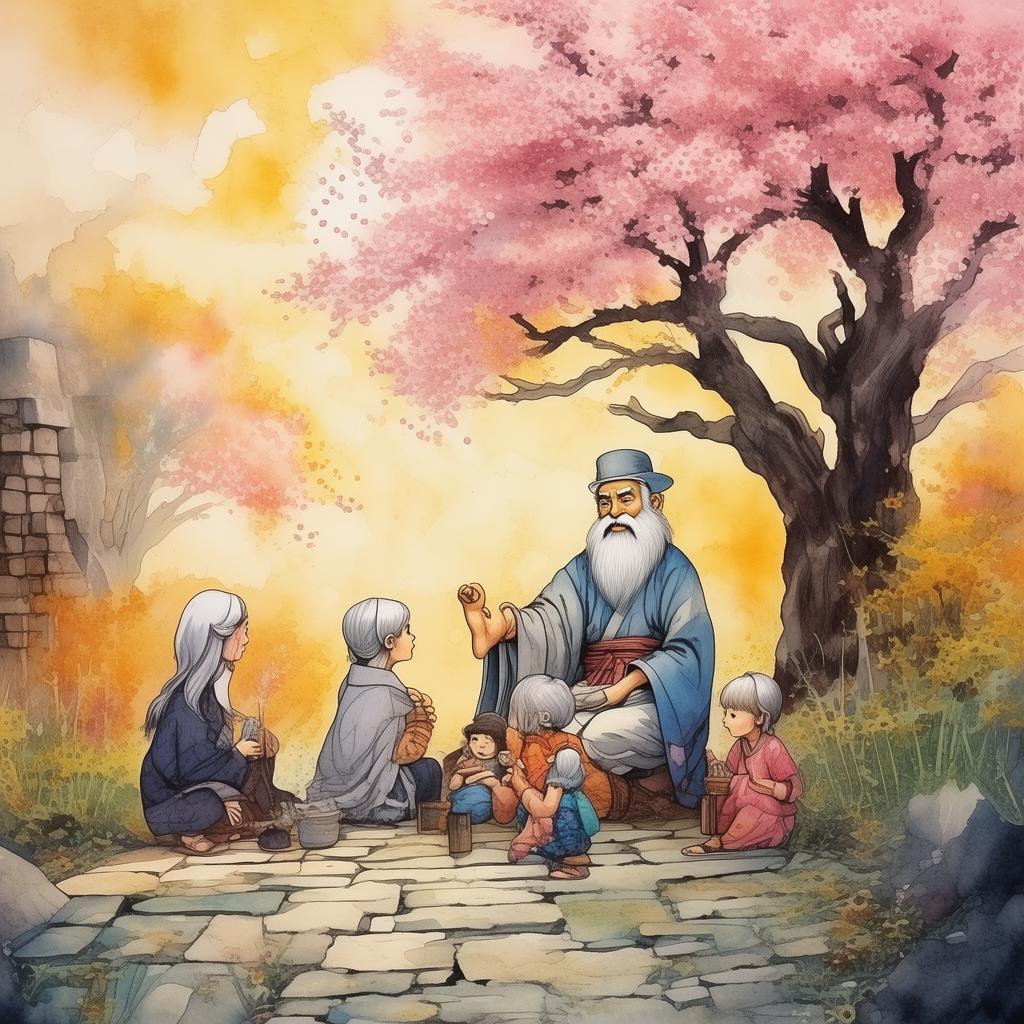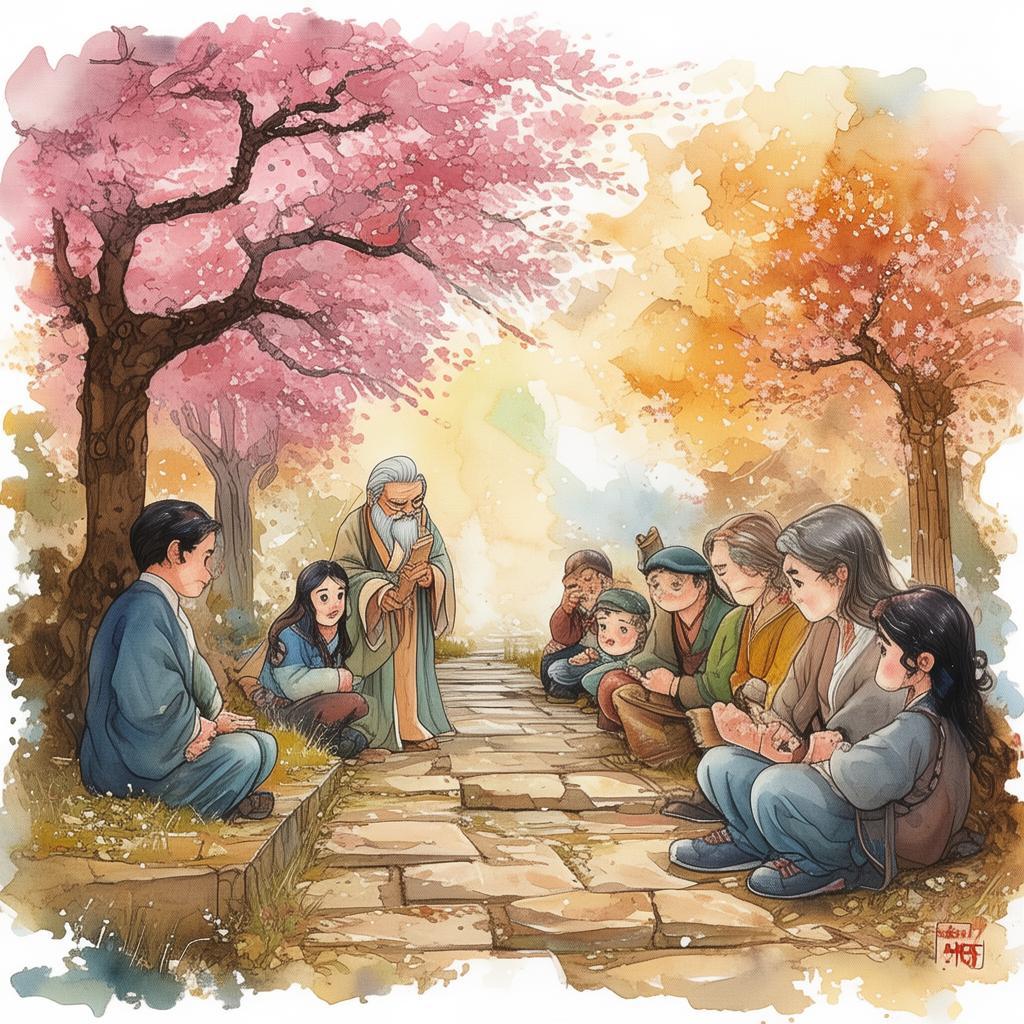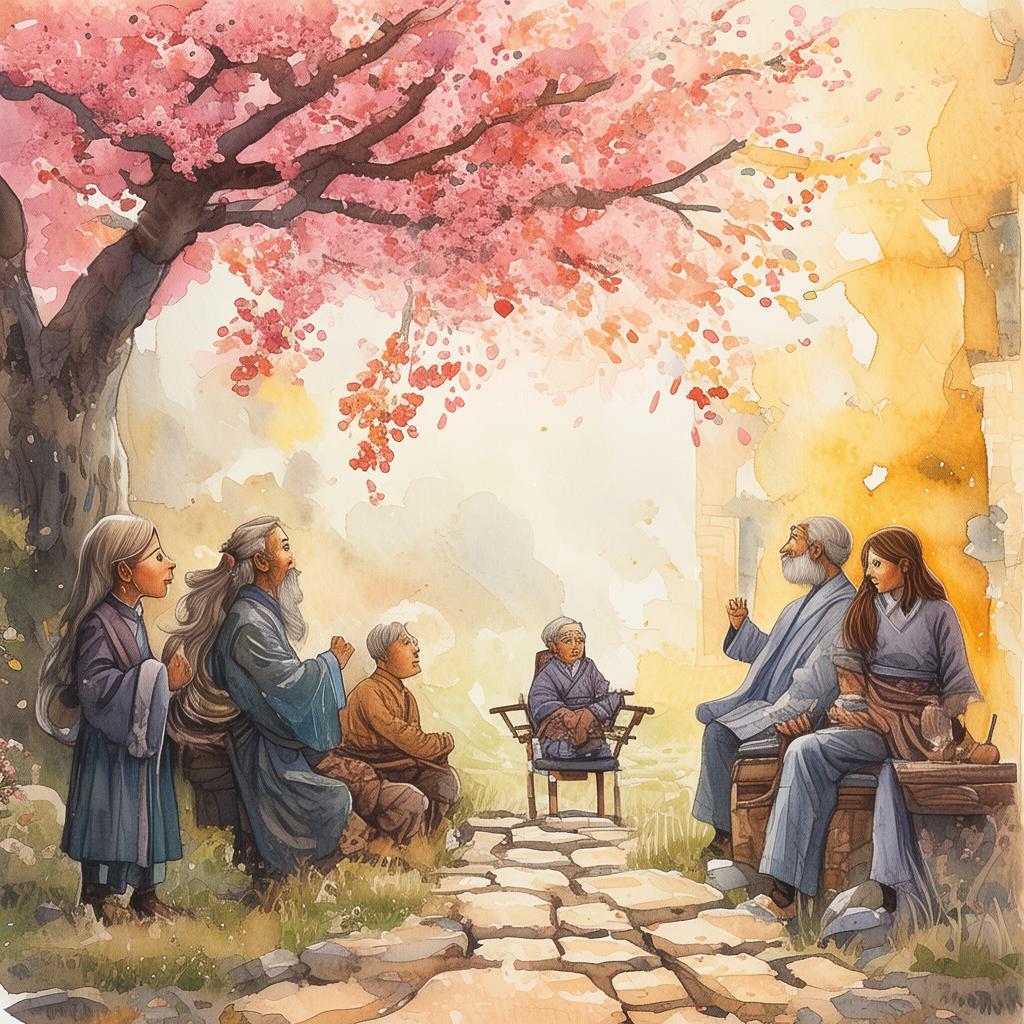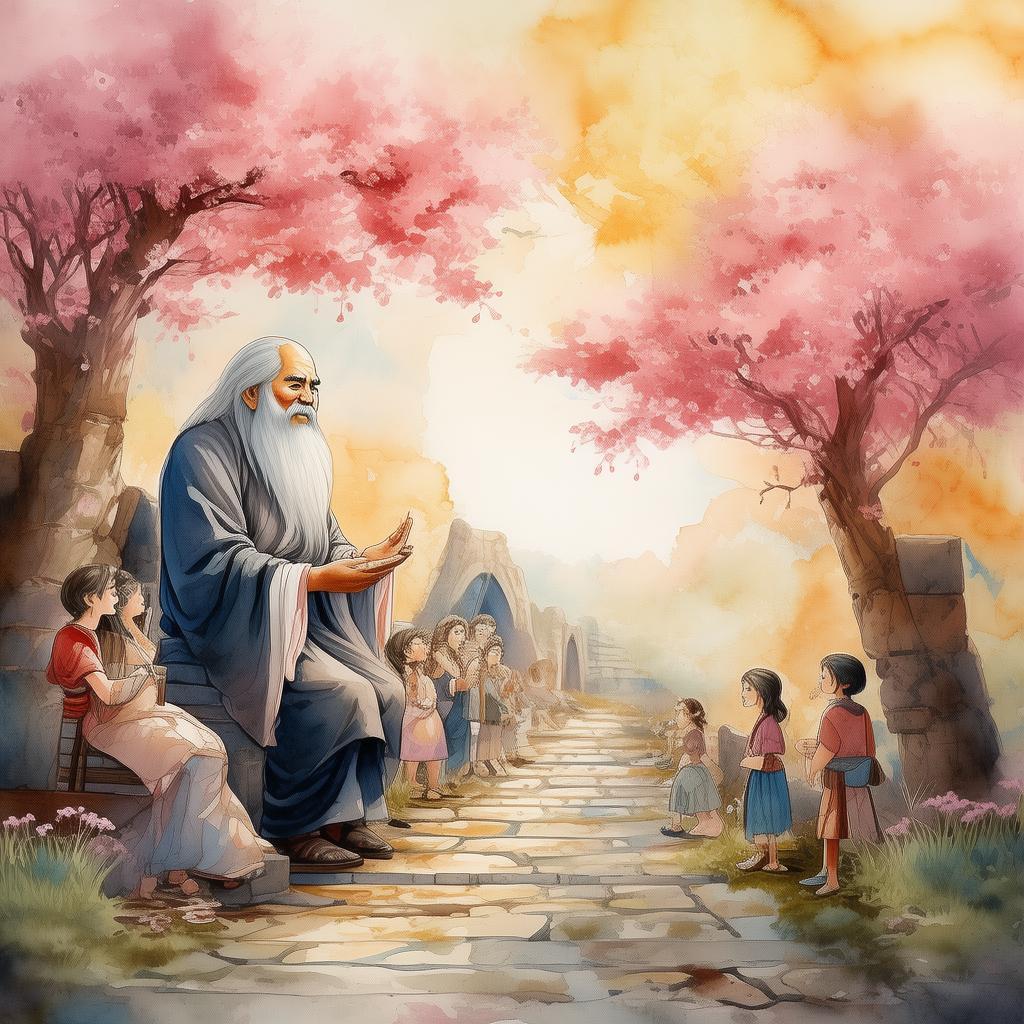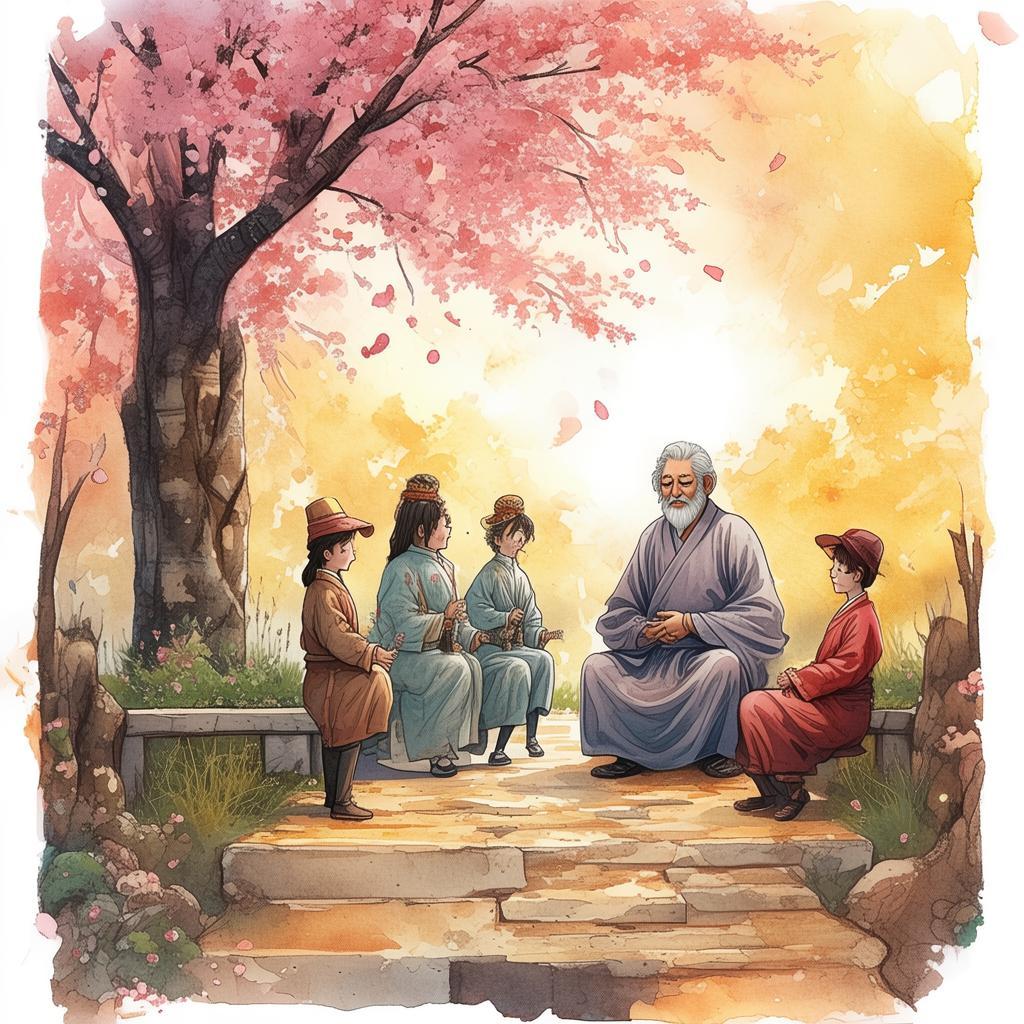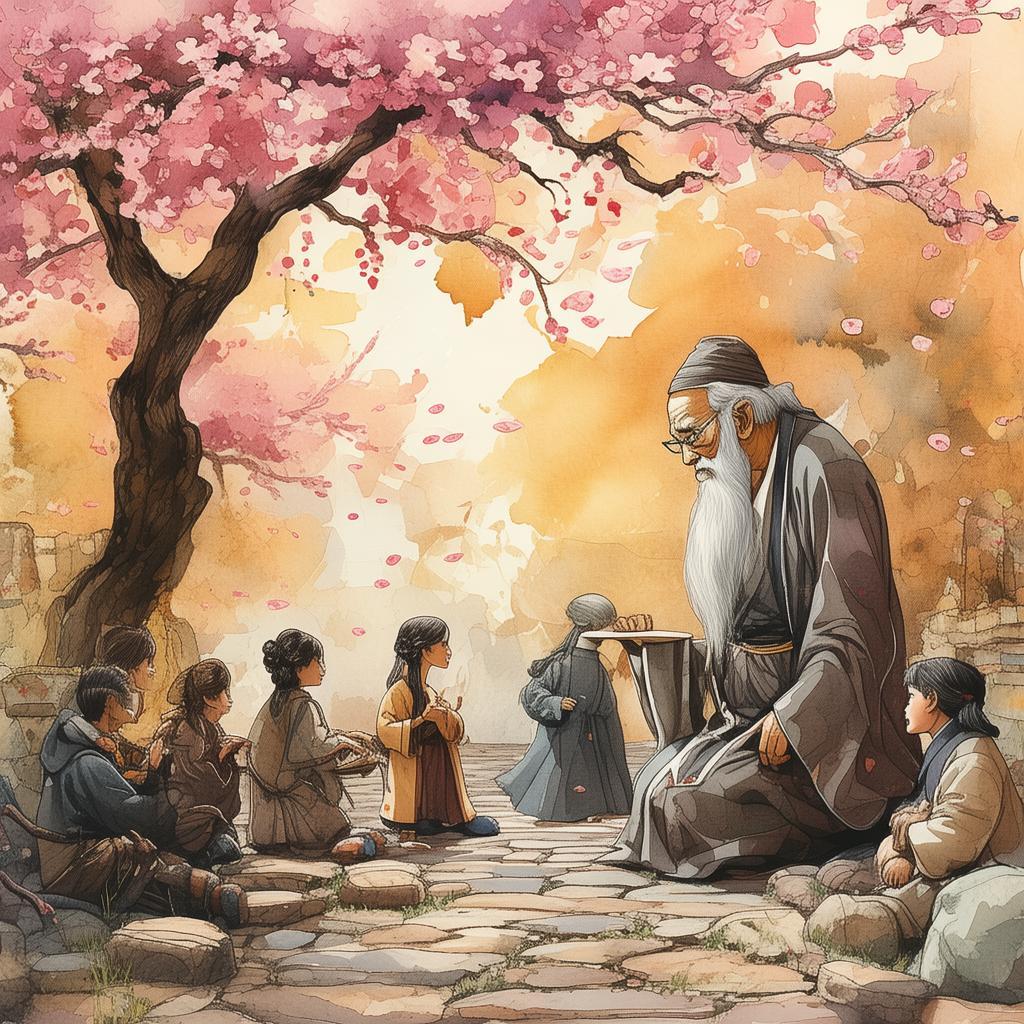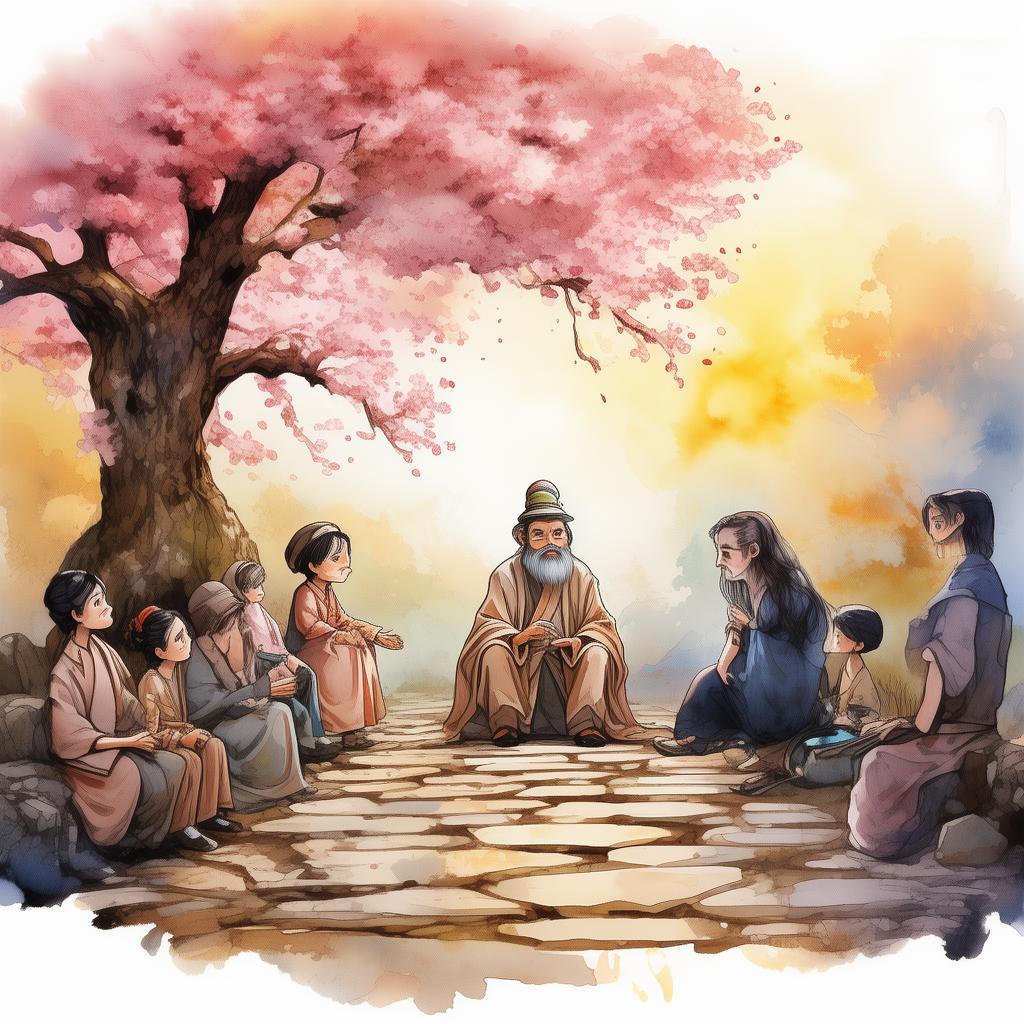The Unraveling of the Unhurt Mind: The Path to Inner Peace
In the serene mountains of ancient China, there was a young monk named Qing. Known for his gentle nature and sharp intellect, Qing had chosen the path of enlightenment and spiritual growth. Yet, despite his serene demeanor, he often found himself troubled by the whispers of doubt and the shadows of his past.
It was during one of his daily meditations that Qing stumbled upon an ancient scroll, hidden beneath a stone in the temple garden. The scroll was written in a language he had never seen before, and it contained a cryptic message: "The Unraveling of the Unhurt Mind." Intrigued and eager to understand the meaning, Qing began to unravel the scroll's mysteries.
The scroll spoke of an ancient teaching that held the key to inner peace—a teaching that went against the very fabric of his understanding of the world. It spoke of a mind that was not shattered by the blows of life, but rather one that remained unscathed, unwounded, and resilient.
Determined to discover the truth behind the scroll's teachings, Qing set out on a journey. He traveled through the lush valleys and arid deserts, seeking guidance from wise sages and testing the resilience of his mind against the harsh realities of the world.
One of his first encounters was with an old farmer who had lived his entire life in a small village, surrounded by poverty and strife. Despite the many hardships he had faced, the farmer maintained a peaceful and contented demeanor. "Why do you struggle so much, monk?" the farmer asked Qing. "You see, I have learned to accept the world as it is, rather than as I wish it to be. My peace comes from the realization that I cannot control everything."
Another sage, an old hermit living in the mountains, taught Qing about the power of mindfulness. "The mind is like a river," the sage said. "When it is calm, the water flows smoothly. But when it is turbulent, the water becomes cloudy and the path ahead is obscured. The key is to find the balance, to let go of the need for control and to embrace the present moment."
As Qing continued his journey, he began to notice changes within himself. He felt more at ease in the face of adversity, and his thoughts no longer felt as heavy and burdensome. He had learned to observe his thoughts without judgment, to let them pass like clouds in the sky without clinging to them.
One day, Qing reached a desolate cave at the edge of a vast desert. Inside the cave, he found a woman who had been trapped for years by a storm. Her body was weak, and her eyes held the pain of a long, lonely struggle. Qing offered her water and food, and as they spoke, he shared the wisdom he had gained from his journey.
The woman listened intently, and as Qing's words touched her soul, she too began to unravel the chains of her own troubled mind. She shared her story of sorrow and loss, and together, they realized that the path to inner peace was not about escaping the past, but about accepting it and learning to live with it.
With renewed determination, Qing continued his journey, his mind now unshackled by the heavy burden of his doubts. He reached a remote temple, where he found an ancient teacher who had been waiting for him. The teacher smiled warmly and said, "You have come a long way, Qing. Your journey has only just begun."
The teacher then presented Qing with a scroll that was identical to the one he had found, but this one contained a different message. It read, "The Unraveling of the Unhurt Mind is not a destination, but a journey. It is a continuous process of self-discovery and growth."
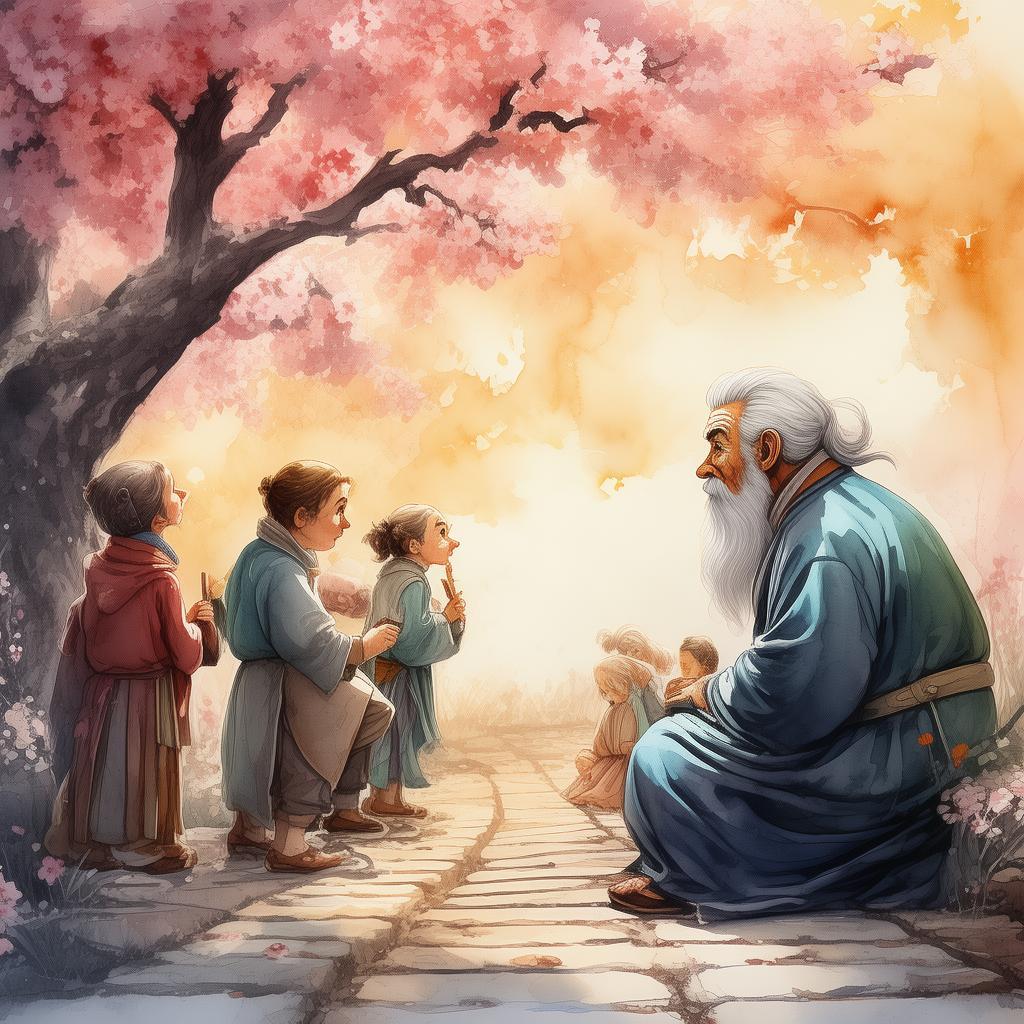
As Qing pondered the teacher's words, he understood that the true purpose of his journey was not to find a single answer, but to cultivate a mindset that allowed him to embrace life's challenges with grace and resilience.
With his mind now unshattered, Qing returned to his temple, his heart filled with peace and gratitude. He shared his experiences and the wisdom he had gained with his fellow monks, and together, they began to practice the art of the unshattered mind.
The Unraveling of the Unhurt Mind had become more than a journey for Qing—it was a revolution, a way of life that spread throughout the land, teaching others to find peace within themselves and to embrace the world as it truly is.
✨ Original Statement ✨
All articles published on this website (including but not limited to text, images, videos, and other content) are original or authorized for reposting and are protected by relevant laws. Without the explicit written permission of this website, no individual or organization may copy, modify, repost, or use the content for commercial purposes.
If you need to quote or cooperate, please contact this site for authorization. We reserve the right to pursue legal responsibility for any unauthorized use.
Hereby declared.
